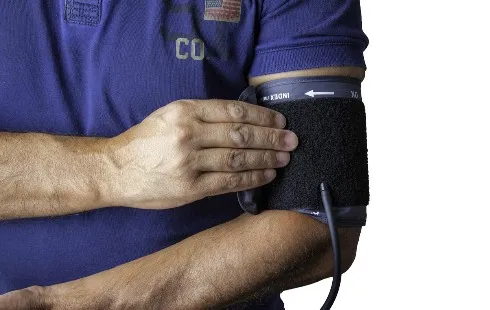
New to Germany? Avoid These Common Health Insurance Mistakes
Section: Health Insurance
"Horror figures falsified: The great fraud with intensive care beds," was the headline of the Bild newspaper on Friday. The supposed scoop was prompted by a report by the Federal Audit Office for the Bundestag's budget committee, which had become widespread the day before. Among other things, the report cited a letter from the Robert Koch Institute (RKI) to Jens Spahn's (CDU) Ministry of Health from January, according to which hospitals "in some cases reported fewer intensive care treatment places than were actually available."
For the ACA, these possible misreportings were significant because, at that time, hospitals only received compensation payments for unoccupied beds if the number of vacant intensive care places in their region was less than a quarter of capacity. Thus, there was a risk that hospitals would portray the situation as worse than it was in order to continue collecting the free holding premium. However, inaccurate or deliberately false data could also, and this is the main thrust of the criticism, have distorted the extent of the pandemic. After all, in addition to other parameters, the number of available intensive care beds is used by the RKI and politicians to assess the situation and thus ultimately has an impact on restrictions in public life. The reproach of the Bild newspaper to Spahn and also to Chancellor Angela Merkel (CDU) is: "The Federal Government knew about the manipulation for months. But it said nothing to the citizens."
This was rejected in Berlin on Friday. The Chancellor's Office said it had no knowledge of possible cheating. The Ministry of Health confirmed the existence of the RKI letter, but explicitly pointed out that "these fears cannot be substantiated with data and analyses". In this respect, there were no reliable findings that the "information on the utilization of intensive care treatment capacities was artificially overestimated". Nevertheless, according to Jens Spahn's office, the suspicions were investigated and, for example, the state health ministers, who are responsible for the hospitals, were informed of possible discrepancies.
It became clear on Friday that the indications of the Court of Auditors could develop some explosive power in the election campaign, which is also likely to revolve around the "Corona management". Not least because Spahn is already tarnished by other accusations in matters of vaccination, testing and mask procurement.
Bundestag Vice President Wolfgang Kubicki of the FDP called on Merkel to clarify "what she knew about the misrepresentations regarding intensive care beds." If she had been aware of this, she had "deliberately" damaged trust and the political culture. Even Erwin Rüddel, the chairman of the health committee in the Bundestag and, like Spahn and Merkel, a CDU member, called on the government to "clarify the matter as quickly as possible." The Court of Auditors' report "raises worrying questions about hospitals," he said.
The hospitals, for their part, feel they have been unfairly denounced. The accusation that the hospitals had reported an excessively high intensive care utilization rate in order to benefit from compensation payments was simply false, the German Hospital Association stated: "There are neither concrete indications nor provable accusations against a hospital" - not even on the part of the Court of Auditors. The assertion that less than 25 percent capacity utilization is sufficient to maintain services is also false. Other parameters would have to be added, such as an incidence of at least 50. Moreover, the extreme strain on hospital staff shows how erroneous the idea is that the pandemic was "calculated to be worse than it actually was.
Photo by Adhy Savala

Section: Health Insurance

Section: Health

Section: News

Section: Arts

Section: Arts

Section: Politics

Section: Politics

Section: News

Section: Politics

Section: Health Insurance
Health Insurance in Germany is compulsory and sometimes complicated, not to mention expensive. As an expat, you are required to navigate this landscape within weeks of arriving, so check our FAQ on PKV. For our guide on resources and access to agents who can give you a competitive quote, try our PKV Cost comparison tool.
Germany is famous for its medical expertise and extensive number of hospitals and clinics. See this comprehensive directory of hospitals and clinics across the country, complete with links to their websites, addresses, contact info, and specializations/services.
Offene Wunde is a documentary theater piece about the attack at the Olympia Einkaufszentrum (OEZ) by Tunay Önder and Christine Umpfenbach. On July 22, 2016, a perpetrator motivated by racism killed nine young people from Munich: Armela, Can, Dijamant, Guiliano, Hüseyin, Roberto, Sabine, Selçuk,...



No comments yet. Be the first to comment!